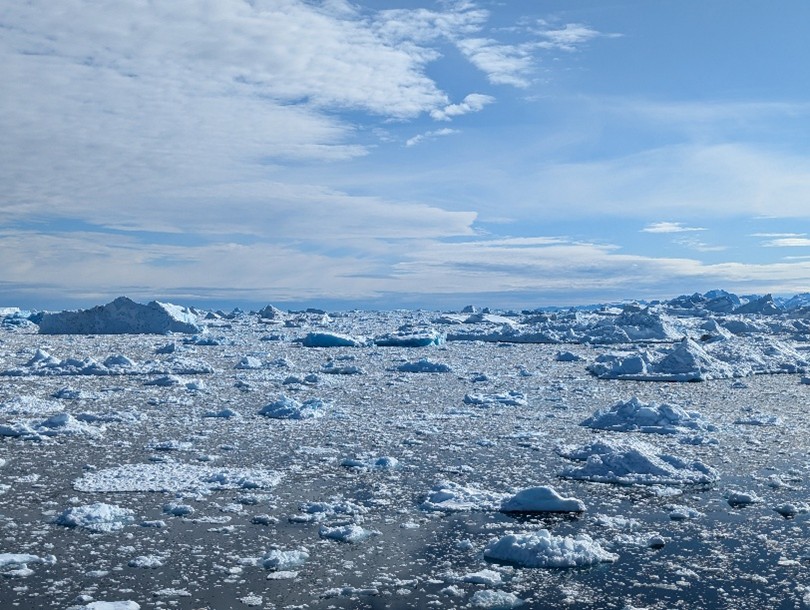IAP-25-027
Understanding Biological Responses to Arctic Sea-Ice Geoengineering climate intervention
The use of geoengineering as a tool to actively cool the Earth is seen as a potential approach to “buy time” to allow for global decarbonisation. Fragile polar ecosystems are critical to the global climate system, yet the potential ecological consequences of climate interventions at the poles are poorly understood. This studentship will be linked to a larger project, ECO-ICE, which will provide an independent impact assessment of climate interventions in the Arctic marine environment on the structure, functioning and resilience of pelagic ecosystems through laboratory experiments and computer modelling. One potential intervention in the Arctic Ocean involves the artificial thickening of sea-ice to prolong its presence in the summer melt season. The PhD candidate will work closely with ecological modellers and analysts to develop numerical and laboratory experimental approaches to understand the impact of Arctic sea-ice thickening interventions on functioning, and resilience of the proximal pelagic Arctic ecosystem. The research will investigate how plankton dynamics and community composition respond to induced changes in the physical and biogeochemical environment.
This work will contribute to the Ecological Risk Assessment framework developed by ECO-ICE. This independent assessment by experts in modelling and ecology is critical to provide a thorough and balanced evaluation of potential climate interventions providing best-practice guidance for future proposed interventions within the polar marine environment.

Click on an image to expand
Image Captions
Credit: Alena Sakovich, BAS
Methodology
The student will perform simulation experiments (using a combination of mesocosm incubation and modelling) where organisms will be exposed to environmental conditions reflecting pre- and post-ice thickening intervention scenarios.
The student will:
– Conduct laboratory incubation experiments at BAS, cultivating key Arctic plankton species under different environmental conditions
– Analyse community dynamics, physiological stress responses, and carbon export efficiency.
– Develop and apply 2D ecosystem models to simulate plankton community responses at regional scales.
– Collaborate closely with ECO-ICE teams to integrate physical and chemical drivers into the biological response models.
– Feed results into ECO-ICE ecological risk assessment.
Project Timeline
Year 1
Literature review, training in polar ecosystem ecology and modelling; setup of mesocosm experiments; pilot culturing trials.
Year 2
Modelling biological impacts. Evaluate ecosystem impacts over larger spatial and temporal scales and explore the effects of individual and combined stressors. The 2D ecosystem models will represent the spatiotemporal dynamics and food web structure of marine plankton pre- and post- climate intervention. The models will be used to assess impacts and conduct multi-method attribution on regional biomass, species composition, network structure, predator-prey dynamics and their implications for ecological resilience
Year 3
Laboratory mesocosm simulation of biological impacts. Key marine plankton species will be cultivated/incubated and exposed to environmental stressors using multifactorial mesocosm experiments capable of supporting multiple treatments simulating different environmental conditions (i.e. control versus ice-thickening induced potential stressors, such as changed light or nutrient conditions). Any direct potential disturbances from equipment (such as chemical and plastic pollution) will also be addressed using spectroscopy techniques
Year 3.5
Integrate modelling and experimental results; conduct multi-method attribution analyses; draft manuscripts for publication. Completion of thesis, high-level synthesis of project conclusions
Training
& Skills
The student will gain interdisciplinary skills in:
– Experimental marine ecology (mesocosm design, culturing, physiological and biochemical analyses)
– Ecosystem modelling and statistical attribution approaches
– Polar environmental change and geoengineering impacts
– Scientific communication and policy engagement
References & further reading
-Siegert, M. et al. (2019). Polar regions. In: IPCC Special Report on the Ocean and Cryosphere.
-Eco-ICE project documentation (2024): https://www.aria.org.uk/exploring-climate-cooling/

